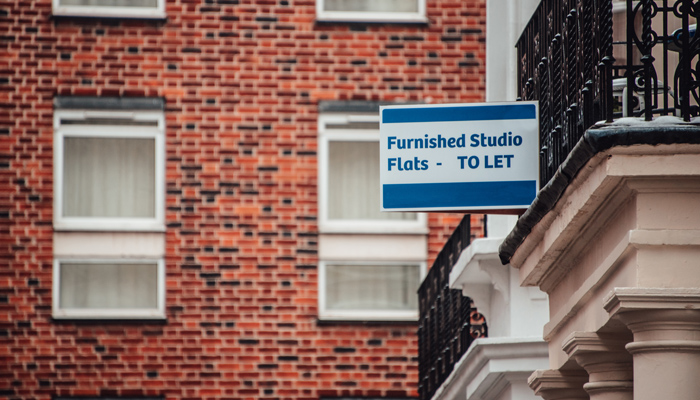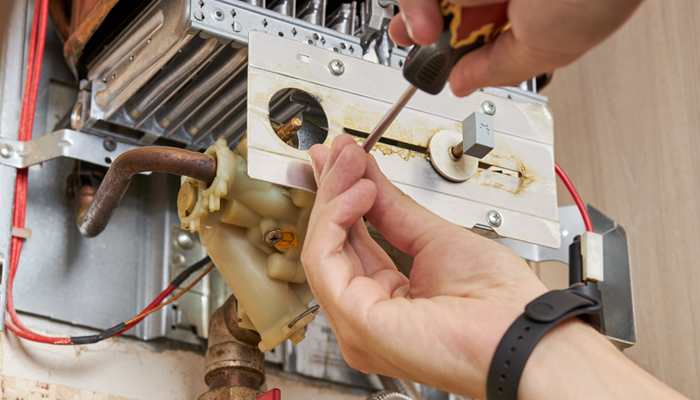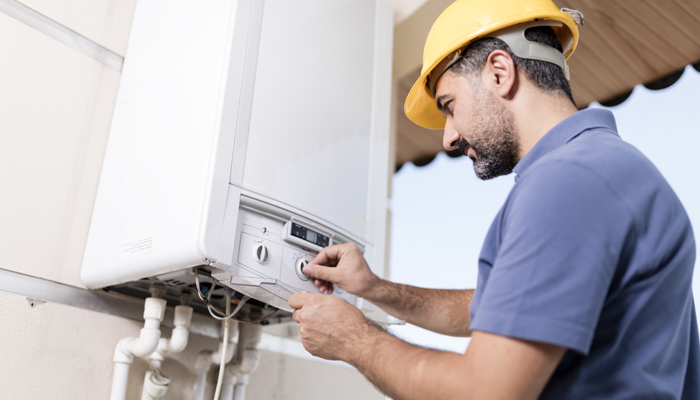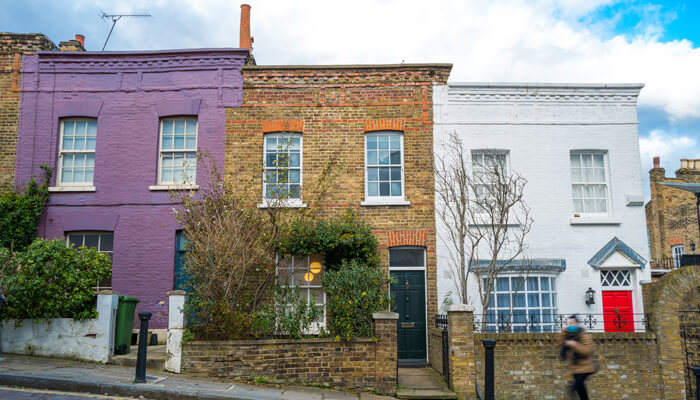What Are The Fire Safety Regulations for Landlords?
Read our simple introductory guide to the key fire safety regulations UK landlords need to consider when renting out their properties.
As a conscientious landlord, staying current on evolving fire safety laws is about more than dodging penalties - it's about protecting what matters most - your tenants' lives and your property investments. Follow these life-saving regulations diligently to safeguard your rentals and tenants.
Why fire safety rules exist
Fire safety protocols aren't simply dry policy and legal jargon - they're vital safeguards for precious lives and costly assets. Beyond meeting baseline duties, diligent fire precautions demonstrate a genuine commitment to human wellbeing and property integrity. Strict regulations have developed over time because society agrees that unchecked fire risks are unacceptable. For conscientious landlords, the purpose boils down to valuing tenant safety above all else.
Key laws dictating fire safety duties
Two central UK laws dictate rental fire safety responsibilities:
- The Housing Act establishes the general duty to provide safe, habitable housing.
- The Fire Safety Order focuses specifically on required risk assessments, equipment, alarms and precautions needed based on property type.
Brush up on these laws to comply across diverse rentals, whether houses or multi-unit buildings. Tap into official guidance, connect with professionals, and keep your knowledge current. Your tenants are counting on you.
Your required fire safety actions as landlord
Fire safety regulations mean landlords have crucial hands-on duties to protect their tenants. Conducting thorough fire risk assessments is central to identify hazards before disaster strikes. Providing safety equipment like smoke alarms and fire doors is essential too - with proper ongoing maintenance checks and timely repairs. In short, adhering to fire safety takes diligence and attention to detail. No cutting corners. Make fire prevention a top priority. Remember, lives hang in the balance. Don’t forget that you need to hold appropriate and current fire and electric wiring certification. Contact local fire officers for more guidance on the requirements.
Specifics on smoke alarms
Legal mandates require smoke alarms on every level, but also consider:
- There are several different types of smoke alarms, including optical, ionisation, heat and multi-sensor (combined).
- The type of smoke alarm you need to fit will depend on which room the alarm is installed in, and the type of combustible material in these rooms.
- Install within 10 feet of bedrooms and on every floor including attics/basements.
- Interconnect alarms in newer properties so all activate together.
- Strategic placement and alarm type can make a big difference in early warning.
Emergency evacuation planning
Escape route planning is another key responsibility. Post clear emergency maps showing each room's primary and secondary exits. Use clear signage to Illustrate fire exit pathways, avoiding dead-ends. Indicate locations of fire extinguishers and blankets. Simple advance planning prevents panicked confusion when seconds count.
Educating tenants on fire safety
Taking time to inform tenants about fire risks and protocols demonstrates you value a collaborative approach to safety. Make sure to effectively communicate the following information:
- Emergency evacuation plans - Ensure tenants know the designated exit routes and evacuation procedure.
- Proper use of safety equipment - Provide clear instructions on operating fire extinguishers, blankets, alarms, etc. Arrange periodic testing of alarms and complete safety evacuation drills.
- Fire hazard awareness - Explain potential sources of fires like cooking, smoking materials, electrical issues.
- Response plans - Discuss what to do in case of a fire alarm or a fire itself.
There are also potential responsibilities for adherence to the regulations that may also apply to the tenants by virtue of the leasehold and rental agreements. These include:
- Not tampering or disabling any fire safety equipment the landlord has provided, such as smoke alarms or fire doors.
- Regularly testing smoke alarms and replacing batteries when needed.
- Keeping fire escape routes clear and accessible.
- Reporting any hazards or malfunctioning equipment to the landlord as quickly as possible.
- Avoiding creating fire hazards through careless behaviour.
Use informational pamphlets, on-site orientations, posters, and regular email/text reminders to remind tenants of these key details. Well-informed tenants who are aware of potential fire hazards and response plans can take action themselves to help prevent disasters. Empower your tenants by making education a priority.
Fire risks and causes
Fires can start easily in rentals if risks aren't controlled.
According to the National Residential Landlords Association:
- Cooking causes 14% of rental fires, especially unattended cooking. Kitchens are high risk areas.
- Electrical faults and outdated wiring account for 28% of fires. This demonstrates the need for regular professional inspections and upgrades.
- Careless smoking, candles, or stacking flammables too close to heaters are other common culprits.
Effective fire prevention starts with identifying potential hazards through thorough risk assessments. Once aware of the dangers, landlords can take action to minimise risks. Staying vigilant and addressing hazards proactively is key.
Consequences of violating fire regulations
Non-compliance carries steep penalties - fines up to £5,000 for lacking alarms, prosecution if injuries or deaths occur, even imprisonment for severe breaches. Civil suits can follow preventable tragedies. Why risk enforcement actions or danger to your tenants? Complying with fire safety rules keeps your tenants, property, and conscience protected. It's your ethical, and legal, obligation. For more information on fire safety and your duties as a landlord, we recommend taking the time to read the NRLA’s Complete Fire Safety Guide for Landlords.
Landlords insurance from Towergate
At Towergate, we offer landlord insurance covering a variety of properties and tenants, including multi-occupancy, students, local authority placements, and unoccupied premises. For more information or to receive an insurance quote, visit our landlords cover webpage or call 0333 060 0915. *
Commercial property insurance from Towergate
Explore our commercial property insurance options, covering a range of properties from our trusted network of insurers. Whether it's a single property or an entire portfolio, we've got you covered. Get a commercial property insurance quote, call us at 0330 828 0512, or request a call back at a convenient time. *
About the author
 Alison Wild BCom (Hons), FMAAT, MATT, Taxation Technician is a highly respected industry professional who has been working with and advising SMEs in areas including tax, pensions, insurance and marketing for over 25 years. She is a member of the Association of Accounting Technicians (AAT) and Association of Tax Technicians (ATT) and also has 20 years' experience as a residential landlord.
Alison Wild BCom (Hons), FMAAT, MATT, Taxation Technician is a highly respected industry professional who has been working with and advising SMEs in areas including tax, pensions, insurance and marketing for over 25 years. She is a member of the Association of Accounting Technicians (AAT) and Association of Tax Technicians (ATT) and also has 20 years' experience as a residential landlord.
* IMPORTANT: When applying for insurance, you should make sure that you are aware and are meeting the current regulations which are set out in the Fire Safety Order and the Housing Act. Please seek professional guidance as necessary.
The information contained in this article is based on sources that we believe are reliable and should be understood as general information only. It is not intended to be taken as advice with respect to any specific or individual situation and cannot be relied upon as such.
Date: April 15, 2024
Category: Landlords












